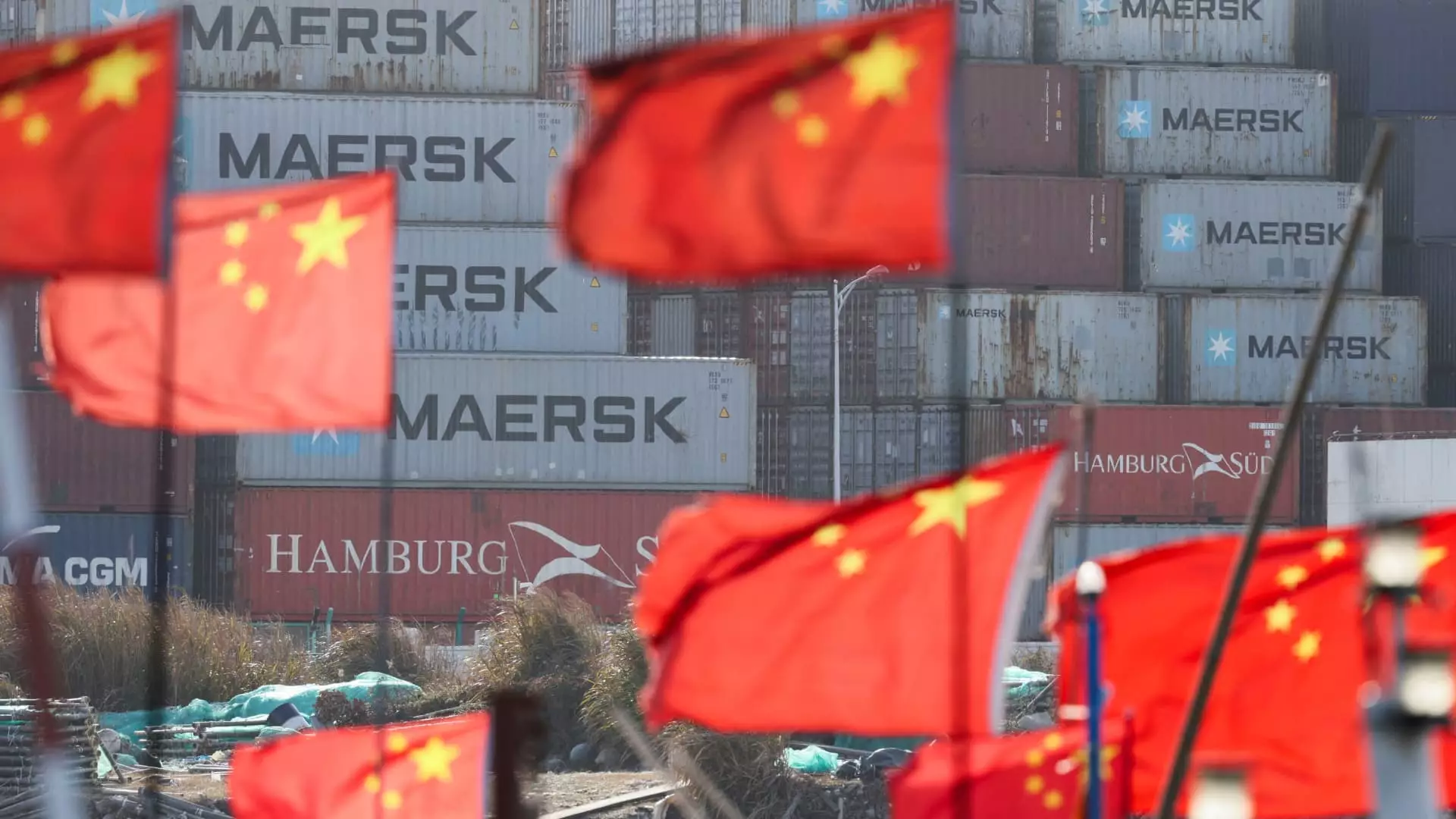In recent weeks, the U.S. administration’s introduction of 34% tariffs on Chinese goods has sent shockwaves through the international trading community—setting the stage for a conflict that resonates well beyond mere economics. As China grapples with these new challenges, analysts suggest a shift in strategy, transforming what once might have been a reactive approach into a more proactive and adaptive economic model. The ramifications extend not just to China, but to its global trading partners who find themselves enmeshed in these unprecedented policies.
The Xi Jinping administration’s response reveals astute awareness of the geopolitical chess game at play. While the Chinese Ministry of Commerce immediately called for the cancellation of the tariffs, there is a palpable undercurrent that suggests Beijing is leaning away from outright retaliation. Instead of a tit-for-tat trade war reminiscent of the previous decade, China’s focus seems to be on shoring up the domestic economy and exploring new markets—a strategy that could lead to increased self-reliance.
Domestic Stimulus: The Heart of China’s Countermeasures
China’s efforts to boost its economy in the face of U.S. tariffs signify a committed pivot towards domestic consumption and innovation rather than banking solely on global exports. Bruce Pang, an adjunct professor at CUHK Business School, emphasizes a significant departure from the confrontational conclusions of earlier trade disputes. The notion of merely imposing counter-tariffs fails to align with China’s longer-term interests, as the economy increasingly looks inward for sustenance.
President Xi Jinping’s recent engagement with tech magnates like Alibaba’s Jack Ma hints at an embrace of private enterprise that strikes a stark contrast against the backdrop of earlier regulatory crackdowns. This, some believe, showcases a strategic recalibration that acknowledges the cumbersome reliance on exports. The implication that China is eager to stimulate its own markets rather than remain tethered to mercurial international politics reveals both self-awareness and adaptability.
Revising Growth Targets: A New Economic Reality
In the face of increasing tariffs, the Chinese leadership has established a growth target of approximately 5% for this year—an ambitious goal in a landscape that presents evolving challenges. Economists argue that the potential GDP slowdown, estimated by Goldman Sachs at a 2% drop due to tariffs, is an urgent call to action. The expectation that the Chinese government will ramp up fiscal support is indicative of a broader strategy: the imperative of stability at home must take precedence over unbridled international expansion.
The push for domestic economic dynamism sheds light on an elusive truth: one of the pillars of Chinese economic strength—exports—is increasingly in jeopardy. The continued application of tariffs on countries like Vietnam and Thailand suggests that the U.S. is not just directing its ire towards China, but is entering a phase of widespread retaliation against any nations it perceives as economic competitors. In this evolving scenario, China’s ability to adapt is put to the ultimate test.
Expanding Trade Partnerships: A Global Perspective
Despite the adversarial posture adopted by the U.S., China seems poised to broaden its trade networks, forging stronger ties with Southeast Asia, the European Union, and other nations. The establishment of the Regional Comprehensive Economic Partnership (RCEP) provides a framework for China to consolidate its economic standing in a way that the U.S. may find difficult to counteract. The integration of ASEAN nations into a robust trade network presents a clear dichotomy between cooperative economic alliances versus the adversarial stance of tariff imposition—an approach that may ultimately backfire for the U.S.
Cameron Johnson, a consulting expert at Tidalwave Solutions, suggests that the tariff escalation still grants China comparative advantages in other markets. If the U.S. is reckless in its strategy, it might inadvertently bolster China’s position, as suppliers and manufacturers turn towards more stable markets in Asia and Africa.
A Foundational Shift in Economic Philosophy
Ultimately, the ongoing shift in China’s response to U.S. tariffs is not merely a set of economic choices but signifies a broader philosophical transformation. Traditional reliance on exports is being replaced by an ethos of self-reliance, innovation, and diversification. Amid significant trials, China’s ability to adapt, recalibrate, and redefine its trade strategies is showcasing not only resilience but an elevation of its global standing.
This new chapter reaffirms that economic ideologies are not static; rather, they evolve in tandem with the geopolitical landscape. The U.S. would be wise to reconsider its approach—strategies rooted in confrontation might yield diminishing returns against a resourceful, resilient adversary. As China embarks on this journey of transformation, the implications for global trade and politics could very well be profound, reshaping the foundations of international economic interactions for years to come.

Leave a Reply